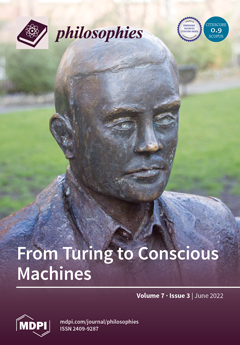A form of context-appropriate verificationism is proposed that distinguishes between scientific theories as evolving systems of ideas and operationally-specified, testable formal-empirical models. Theories undergo three stages (modes): a formative, exploratory, heuristic phase of theory conception, a developmental phase of theory-pruning and refinement, and
[...] Read more.
A form of context-appropriate verificationism is proposed that distinguishes between scientific theories as evolving systems of ideas and operationally-specified, testable formal-empirical models. Theories undergo three stages (modes): a formative, exploratory, heuristic phase of theory conception, a developmental phase of theory-pruning and refinement, and a mature, rigorous phase of testing specific, explicit models. The first phase depends on Feyerabendian open possibility, the second on theoretical plausibility and internal coherence, and the third on testability (falsifiability, predictive efficacy). Multiple perspectives produce variety necessary for theory formation, whereas explicit agreement on evaluative criteria is essential for testing. Hertzian observer-mechanics of empirical-deductive scientific models are outlined that use semiotic operations of measurement/evaluation, computation, and physical action/construction. If models can be fully operationalized, then they can be intersubjectively verified (tested) irrespective of metaphysical, theoretical, value-, or culture-based disagreements. Verificationism can be expanded beyond simple predictive efficacy to incorporate testing for pragmatic, functional efficacy in engineering, medicine, and design contexts. Such a more open, pragmatist, operationalist, epistemically-constructivist perspective is suggested in which verification is contingent on the type of assertion (e.g., heuristic, analytic, empirical, pragmatic), its intended purpose, degree and reliability of model-based evidence, and existence of alternate, competing predictive models. Suggestions for epistemological hygiene amidst the world-wide pandemic of misinformation and propaganda are offered.
Full article





